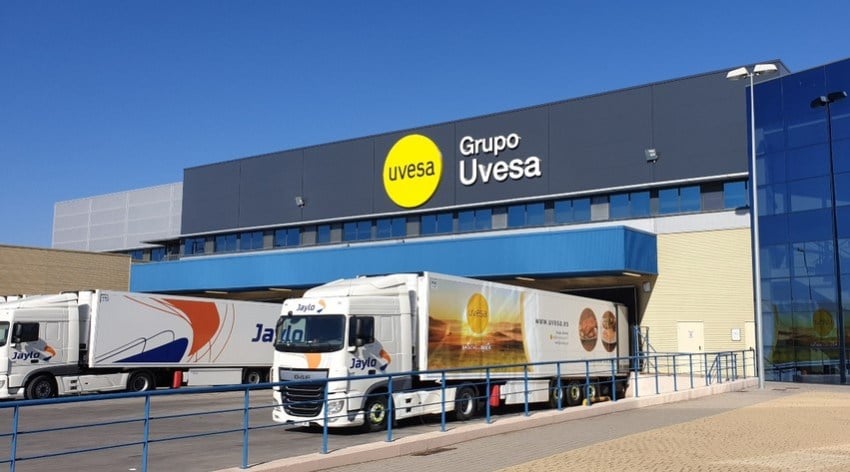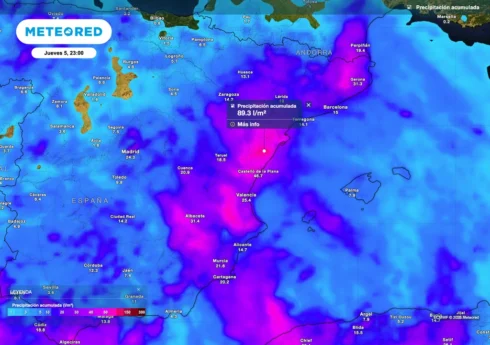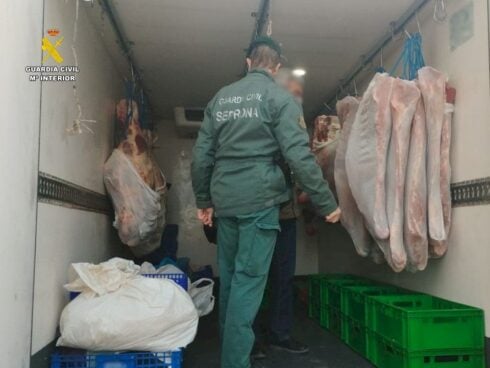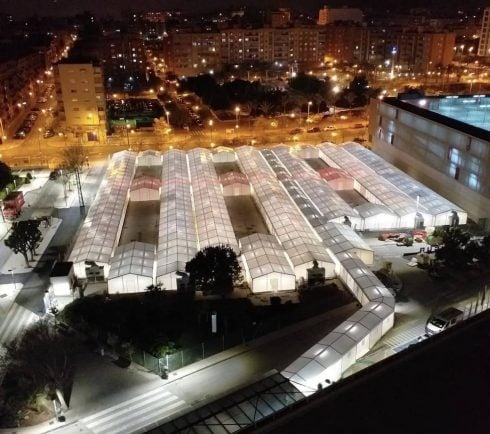A MEAT-processing plant in the Valencian Community has become the centre of a significant coronavirus outbreak after 14 workers tested positive on Monday, June 29.
The Grupo Evesa facility in Rafelbunyol, Valencia province, has seen close to 500 PCE tests carried out on its workforce to contain the outbreak that was announced last Sunday.
Detailed blood tests are now being done to see whether positive Covid-19 results are down to staff having contracted the virus earlier this year.
None of the those who tested positive have shown symptoms of coronavirus, but workers are reportedly in self-isolation as a precaution.
The PCE testing at the Evesa factory has become the largest conducted at an industrial location in the Valencian Community. It was announced by regional health minister Ana Barcelo last weekend, adding that three members of the same family were the first to test positive.
Rafelbunyol’s mayor, Fran Lopez, appealed for local residents to remain ‘calm’.
He said that the situation was ‘well under control’ and that anybody who had tested positive were self-isolating at home.
The Rafelbunyol outbreak mirrors reports from meat plants across Spain and in Europe in the last month.
At least 31 workers at the Noel Alimentaria meat-processing plant in Catalunya tested positive earlier in June, with the meat industry now viewed as a hotspot for the spread of the virus.
There are a number of reasons as to why meat plant staff are vulnerable to catching Covid-19.
Difficulty in maintaining social distancing on production lines is said to be a factor, and scientists also believe that a lack of sunlight helps the virus to linger longer.
Meat factories are also damp, which makes them a fertile ground for the virus to develop.
The refrigeration units are often noisy and with other machinery used as well, workers are often having to shout leading to the chance of spreading more droplets carrying the virus.
Some experts believe that the increased cases in the processing plants are an indication of what the public might face with a second coronavirus wave this autumn and winter when the weather becomes colder and damper.
Scientists have reassured consumers that despite the contagion in the meat factories, coronavirus cannot actually be transmitted through the food products themselves.
Click here to read more Spain News from The Olive Press.








